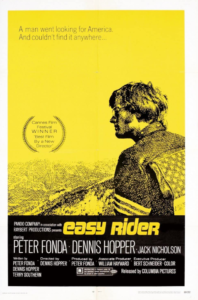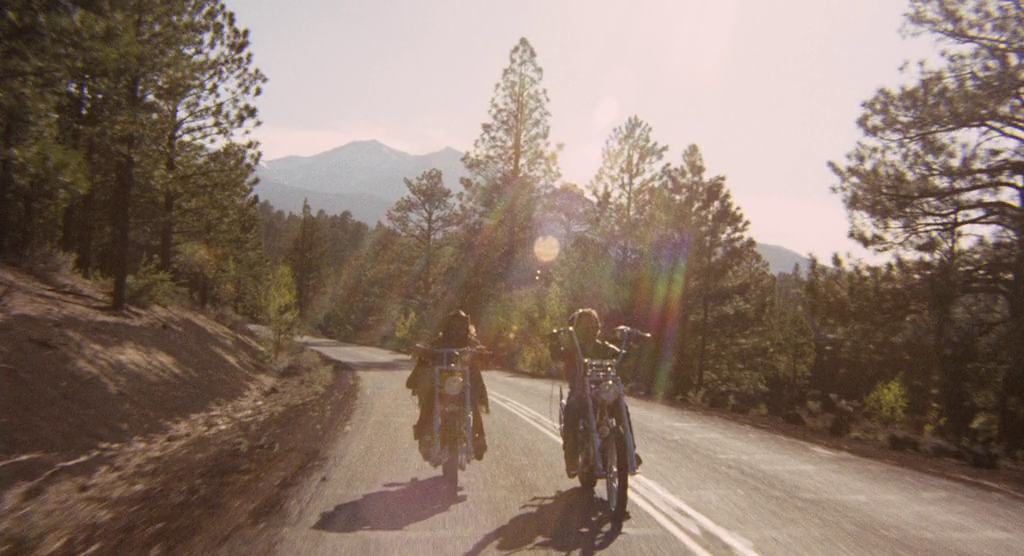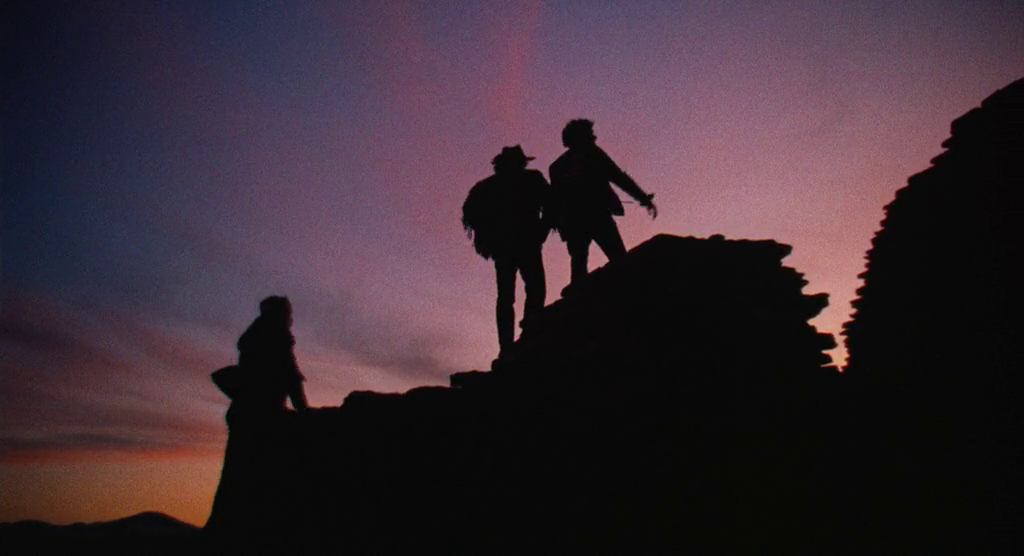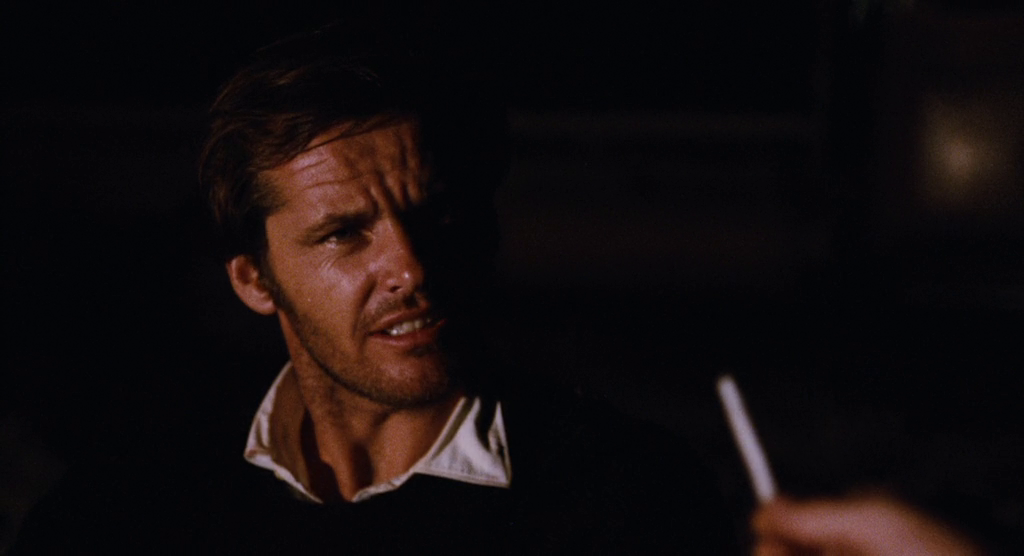Easy Rider (1969)
“You know, this used to be a hell of a good country.”
|
Synopsis: |
|
Genres, Themes, Actors, and Directors:
Response to Peary’s Review: … admired Hopper’s bizarre editing techniques, and packed their knapsacks after seeing Laszlo Kovacs’s stunning photography of the southwestern landscape… they objected to the females being mere sex objects” and were upset by “the flimsiness of the script,” including the “thoroughly depressing rather than progressive finale.” In Cult Movies 3, Peary expands his discussion of this film, which he writes has become “legendary” — a “celluloid symbol of freedom.” However, while it “has been romanticized” by those who want to “just chuck it all and ride free and easy across our beautiful land,” he notes that these viewers “refuse to acknowledge/remember that Wyatt [Fonda] and Billy [Hopper] discover there is no real freedom in our cemetery-lined ‘land of the free’.” Peary adds that “one forgets that the ‘personal’ films of the late sixties and early seventies were almost all pessimistic, and that Easy Rider was the biggest downer of them all.” I agree with Peary’s overall assessment, and was surprised upon my revisit of this film to see how aimless and unsatisfying it really is. The pacing is odd (perhaps due to Hopper originally envisioning it as many hours long): we never have a sense of where things will go or what will happen to these characters, who might be infinitely more sympathetic than the bigoted Southerners who hurl invectives at them simply for having “long hair”, but are not exactly people you want to spend time with (they’re cocaine smugglers, after all). Nicholson remains the bright light in the storyline, showing the vibrant lunacy that would serve him so well in coming films. Otherwise, as Peary points out, “the other characters in the film are as insufferable as Wyatt and Billy.” For instance, “the obnoxious, lamebrain male and female commune dwellers — dummies in the desert — are a sorry lot”, and “Hopper, Fonda, and co-writer Terry Southern (added to give the film class) give no indication there were also more admirable, more socially involved members of the counterculture.” Film fanatics should definitely check this film out once, given its iconic relevance in American movie history — but prepare to be disappointed. Redeeming Qualities and Moments: Must See? Categories
Links: |





2 thoughts on “Easy Rider (1969)”
⭐️⭐️⭐️⭐️ out of ⭐️⭐️⭐️⭐️
Experimental at the time but it defined the era and as such it’s a must see whatever anyone may think of the film itself. I suspect that most coming to it these days will find it a rambling disappointment when matched against it’s awesome reputation.
It’s leads aren’t really sympathetic which can be a problem but the filmmaking is impeccable.
A once-must, for its place in cinema history – and I’m in rather complete agreement with the assessment.
I should add that this isn’t particularly a film I would want to revisit. I saw it on its release (when I was 14 or 15) – and it was a rather upsetting experience, esp. that ending! ~not so much because I felt for Fonda and Hopper at that point but *the exact method* of their deaths left a 14- or 15-year-old understandably stunned and shaken. (Yes, the soundtrack was and is great but it also distracts you from what’s coming.)
Once it was released on video (or maybe shown on cable tv), I probably did see it again once or twice, so I recall it rather well. ~ which is why I don’t think it holds up all that well on repeat viewings; it fully says what it has to say the first time out. In terms of audience taste in 1969, it was definitely a finger-on-the-pulse flick.
Nicholson does steal the film. Upon seeing Nicholson in this, Mike Nichols told screenwriter Jules Feiffer that he wanted JN for the lead in Feiffer’s ‘Carnal Knowledge’… saying, if I recall, that Nicholson was “the new Brando”. Feiffer did not have that same impression (or, at any rate, did not see JN as the lead for his script) but he nevertheless trusted Nichols… and that was that.